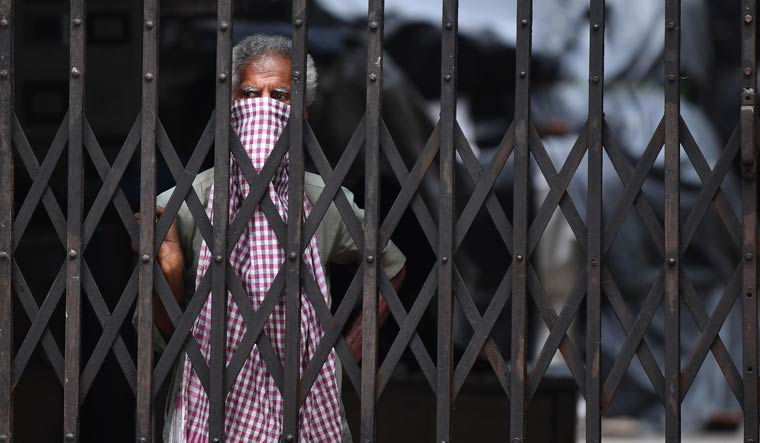On Tuesday, Maharashtra, which had already imposed severe restrictions on non-essential services till the end of the month, announced further restricted timings for shops selling essential goods, like groceries and dairies, and for fruit vendors.
Delhi imposed a week-long lockdown and Jammu and Kashmir expanded the night curfew to all districts. Restrictions of varying degrees are in place in many other states too, as COVID-19 cases continue to surge and the healthcare infrastructure is stretched. This is beginning to have an impact on the economy, which was expected to rebound strongly this year.
The Google Mobility report for India shows a 36 per cent dip in mobility trends for places such as restaurants, cafes, shopping centres, theme parks, cinemas etc as of April 16 from March. Mobility trends to public transport hubs like bus and train stations were down 21 per cent and for work places, it declined 26 per cent.
The data was far worse in Maharashtra with mobility trends to retail and recreation places down 66 per cent, public transport declining 47 per cent and mobility trends to workplaces slipping 48 per cent.
Nomura’s India Business Resumption Index has further fallen 16 percentage points below pre-pandemic level, as of April 18, from 12 per cent in the previous week.
Last year, India imposed a complete lockdown over April and May. While the lockdowns this time around are not as stringent, Sonal Varma, chief India economist at Nomura Securities, feels states could impose stricter restrictions in response to the burdening of hospital infrastructure.
“This suggests the economic impact of the second wave could intensify in coming weeks, particularly through the mobility route, with the downside risk of spreading to the wider economy, even as power demand and labour participation rate so far remain largely unaffected,” said Varma.
Slowdown signs are visible in several sectors, aviation is one. Weekly average daily fliers declined to 193,000 in the week ended April 17 from 232,000 in the week ended April 10, according to ICICI Securities data. The decline in daily fliers was sharper on April 15, 16 and 17 at 176,000, 175,000 and 182,000 respectively.
“Rising COVID cases and increasing lockdown restriction from various states will remain an overhang on air traffic,” said ICICI Securities’ research analyst Ansuman Deb.
April was expected to be a strong month for automobile companies and other consumer goods makers, given several festivals like Gudi Padwa, Vishu, Ugadi, Vaisakhi, Bihu and Chaitra Navratri. However, there doesn’t seem to have been much festive cheer.
Jinesh Gandhi and Vipul Agrawal, research analysts at Motilal Oswal Financial Services, say their interactions with two-wheeler dealers indicates sales are down 30-50 per cent, with no signs of recovery. Maharashtra dealers on Gudi Padwa reported just 50 per cent of expected sales, the analysts noted.
“Inventory at Hero (45-60 days), Bajaj (35-50 days), and TVS (30-40 days) was manageable at the start of the month, with a supporting number of inquiries and bookings. However, dealers saw a significant increase in cancellations with the rise in COVID cases,” said Gandhi and Agrawal.
This economic uncertainty and the continued surge in COVID-19 cases, which have impacted the rural markets too in a big way have capital market investors worried. On Tuesday, the BSE Sensex tumbled 244 points or 0.5 per cent to close at 47,705.80. This was on top of the 883 points plunge on Monday. The benchmark stock index is now down more than 9 per cent since it hit a life high of 52,516.76 on February 16, 2021. So far in April, foreign portfolio investors have sold Rs 7,041 crore from India’s equity markets.
Gautam Duggad, head of research – institutional equities, Motilal Oswal Financial Services says restrictions in various states and localised lockdowns will impact the economic activity in the near term and hurt the “incipient gradual economic recovery.”
“The data on IIP (index of industrial production) and some other macro indicators already points towards sequential deceleration in activity. Naturally, this has created some anxiety and introduced uncertainty about macro and micro forecasts,” said Duggad.
A ray of hope is that the centre has thus far said that there is no possibility of a nationwide lockdown like last year, thus restrictions if any are likely to remain state-specific. Furthermore, the government is speeding up its vaccine strategy and from May everyone who is over 18 years of age will be eligible to get a jab. A speedier vaccination strategy will be key to the economic revival.





